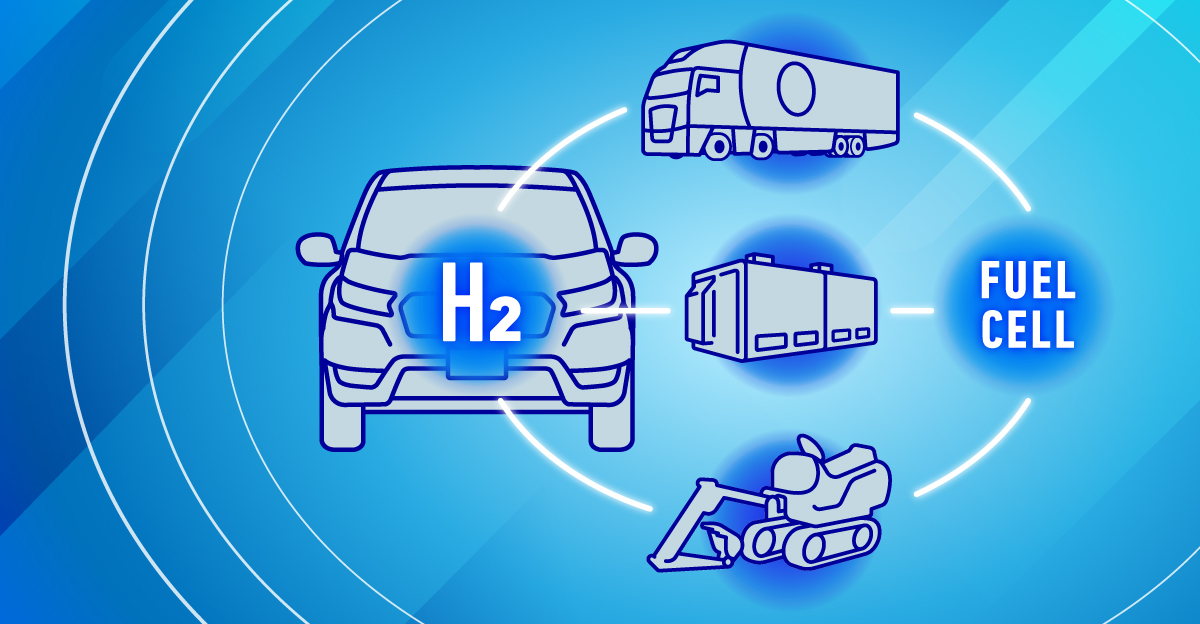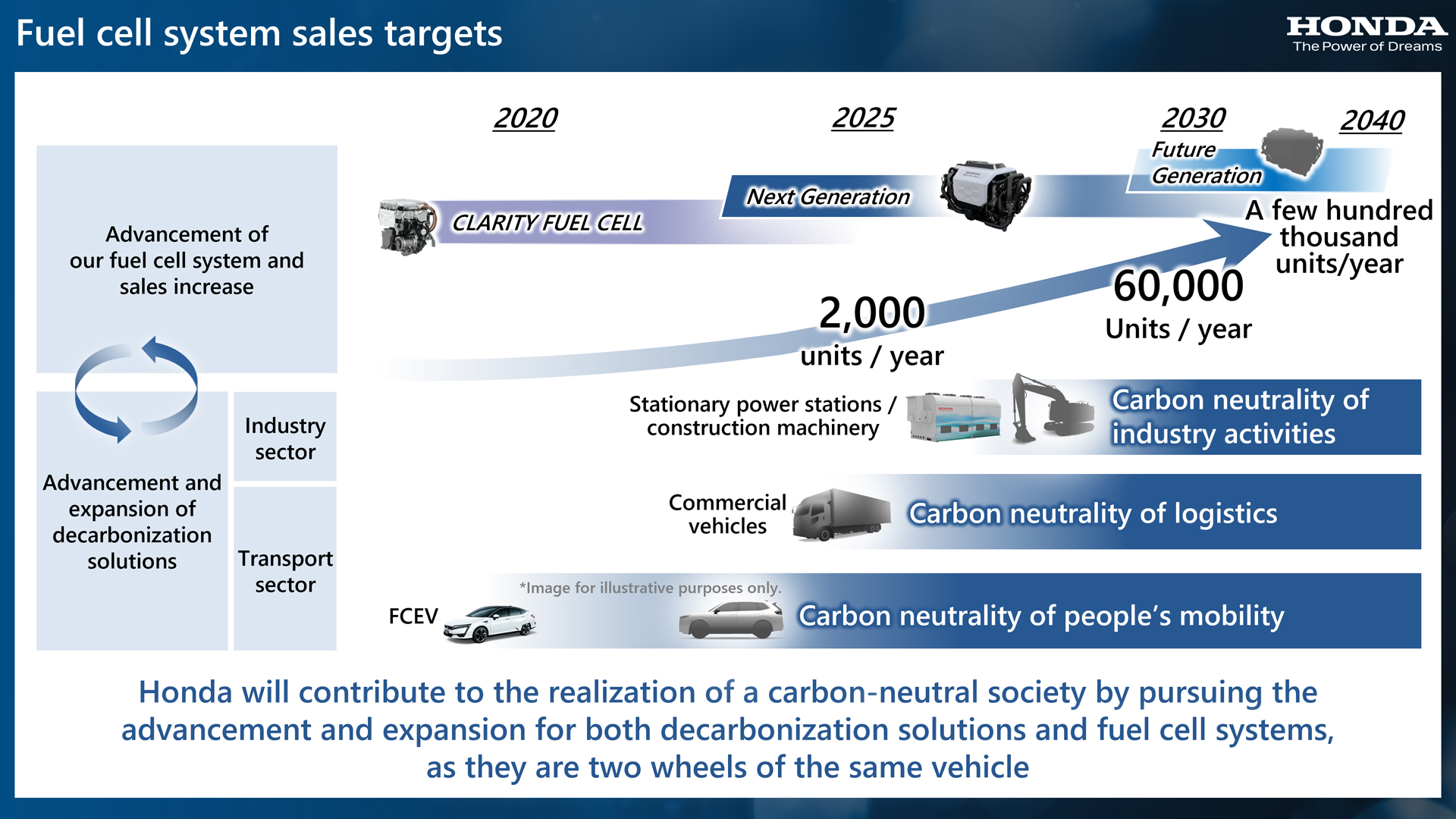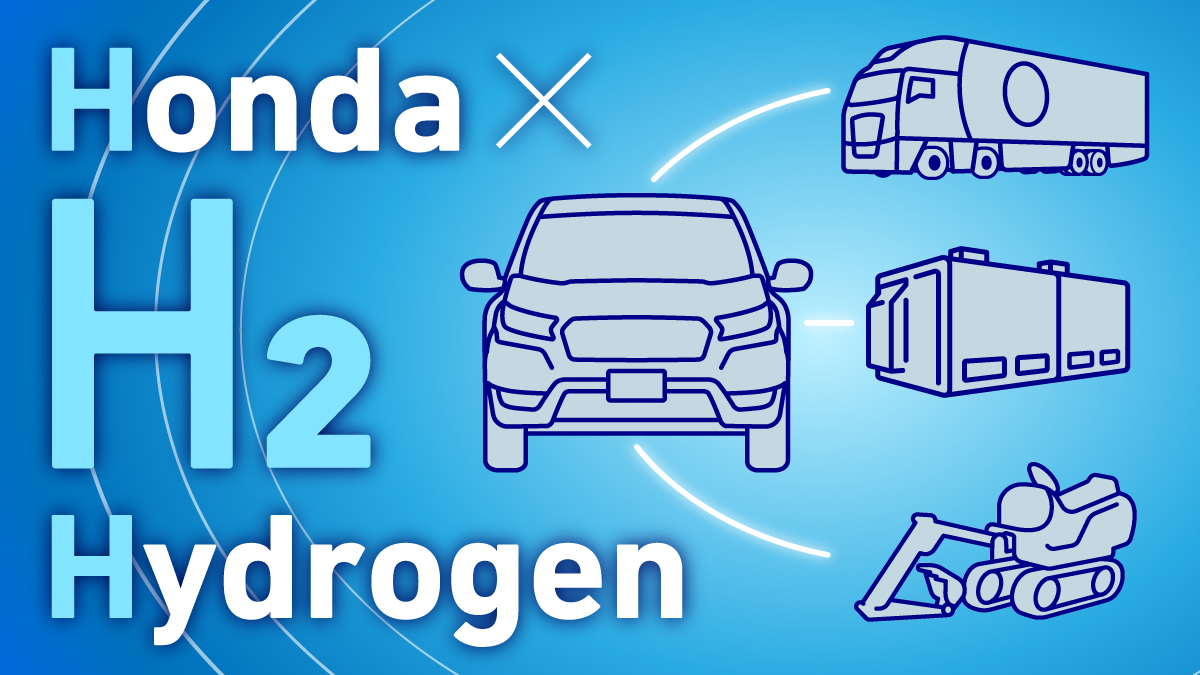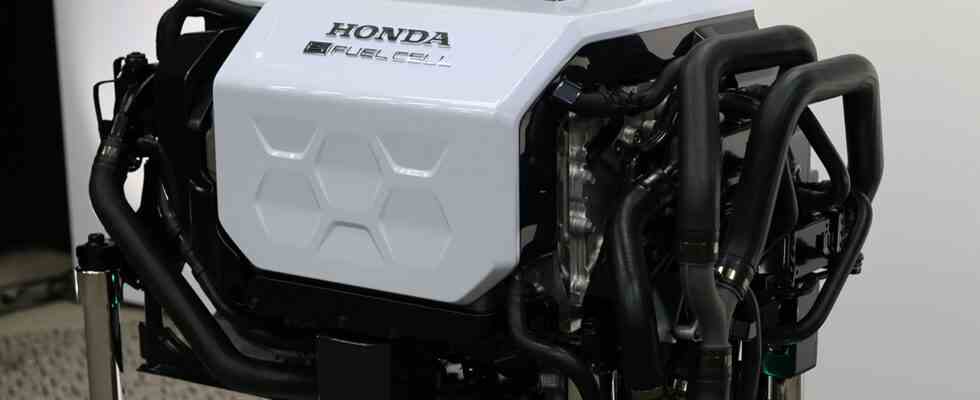Honda held a press conference detailing the developments in the hydrogen field. Sharing its current works and future goals within the scope of this meeting, Honda aims to reach its dream of a carbon neutral society by using hydrogen in many different fields.
Honda aims to become carbon neutral in all of its products and corporate activities by 2050. In line with this goal, which covers all activities, Honda positions hydrogen as one of the high potential energy carriers along with electricity in its initiatives.
It plans to reduce carbon emissions by expanding the applications of the fuel cell system, which is the basis of hydrogen technology, in different application areas besides the hydrogen fueled cars it produces.
Development of the hydrogen fuel cell system
While Honda stands out for being one of the first companies to focus on the potential of hydrogen towards realizing a carbon neutral society; has been conducting research and development studies of FCEVs with hydrogen technologies for nearly 30 years. Honda has been partnering with General Motors on the development of the next generation fuel cell system since 2013.

In this context, Honda is preparing to launch an FCEV model with a new generation fuel cell system developed jointly with GM in North America and Japan in 2024.
With the contribution of the knowledge, technological knowledge and economies of scale of the two companies, the budget that emerged with the reduction of the cost of the Clarity fuel cell produced by Honda in 2019 to one third, was used in the improvements in the other features of the model.
In light of these developmentsn Having also shaped its vision for the future, Honda focused on future fuel cell technologies, taking into account the popularity of advanced fuel cell vehicles. Honda continues to work to realize the availability and total cost of the fuel cell system that will keep it on par with conventional diesel engines.

On the other hand, Honda is also collaborating in space, another potential area where the hydrogen technologies it has developed can be used. Honda announced joint research and development efforts with the Japan Aerospace Exploration Agency (JAXA).
In this context, a research and development contract was signed between Honda and JAXA in 2022 regarding the “circulating renewable energy system” designed to provide electricity in living spaces in space.
Sales and scope of hydrogen fuel cell products
Honda plans to start the sales of next-generation fuel cell system modules in the mid-2020s by implementing the hydrogen technologies it focuses on within the scope of its zero carbon target. While Honda foresees its first sales plan as 2,000 units per year; It will gradually increase sales, increasing to 60,000 units in 2030 and several hundred thousand units per year in the second half of the 2030s.

Hydrogen, which can store and transport energy at high density and fill the tank quickly, is expected to be effective as a power source for large-scale mobility products and large-scale vehicles that use the fuel cell system intensively due to these properties.
Based on these features and strengths, Honda has identified four key areas for fuel cell system applications for the first phase of its hydrogen studies. In addition to work on adapting the fuel cell system to customers’ products, Honda will also provide operational support such as after-sales maintenance and a stable supply of hydrogen.
1) Hydrogen Fuel Cell Electric Vehicles (FCEV)
Honda plans to begin sales of the all-new FCEV model in North America and Japan in 2024. This model will be based on the CR-V introduced in North America last year and will be equipped with a next-generation fuel cell system. In addition to the advantages of FCEVs that provide long-distance driving with a fuel that fills in a short time, the model will have an add-on function that offers the convenience of home-chargeable EVs.
2) Commercial vehicles
Honda plans to begin on public roads demonstration tests of a prototype fuel cell heavy-duty truck being researched in partnership with Isuzu Motors before March 31, 2024, in Japan. In addition, in January 2023, Honda started test drives of commercial trucks with a new generation fuel cell system in cooperation with Dongfeng Motor Group in China’s Hubei province.
3) Power stations
Honda recommends the application of fuel cell systems as a clean and quiet backup power source for the increasing energy needs in the coming years.
As a first step in this direction, American Honda Motor has installed a stationary fuel cell power plant with a capacity of approximately 500kW at its corporate campus in California, USA, which reuses the fuel cell systems in Honda Clarity Fuel Cell vehicles. Operation of the station as a backup power source for the campus’ data center will begin later this month.
Following this test, Honda will begin applying stationary fuel cell power plant technologies to Honda factories and data centers around the world.
4) Construction machinery
Honda will begin work on applying the fuel cell system first to excavators and wheel loaders, which make up a large part of the construction machinery market. Honda will also work with construction industry associations and interested parties to bring this issue to life.
Initiatives for the establishment of hydrogen ecosystems
Underlining the critical importance of creating hydrogen ecosystems that include hydrogen supply to enable the widespread use of fuel cell systems, Honda has joined the Japan Hydrogen Station Network Partner Company (Japan H2 Mobility/JHyM) with hydrogen station businesses such as Shell and FirstElement Fuel in Japan. It supports the expansion of hydrogen station networks in North America.
Working together with Marubeni Corporation and Iwatani Corporation to establish a hydrogen ecosystem in Japan, Honda plans to demo test an energy ecosystem combining renewable energy and hydrogen in Europe.
Aiming a more livable world with its engineering studies, Honda plans to take an active role in the establishment of hydrogen ecosystems, proactively participate in projects organized by national and local governments, and work to establish partnerships with new companies in the hydrogen field through these initiatives.
